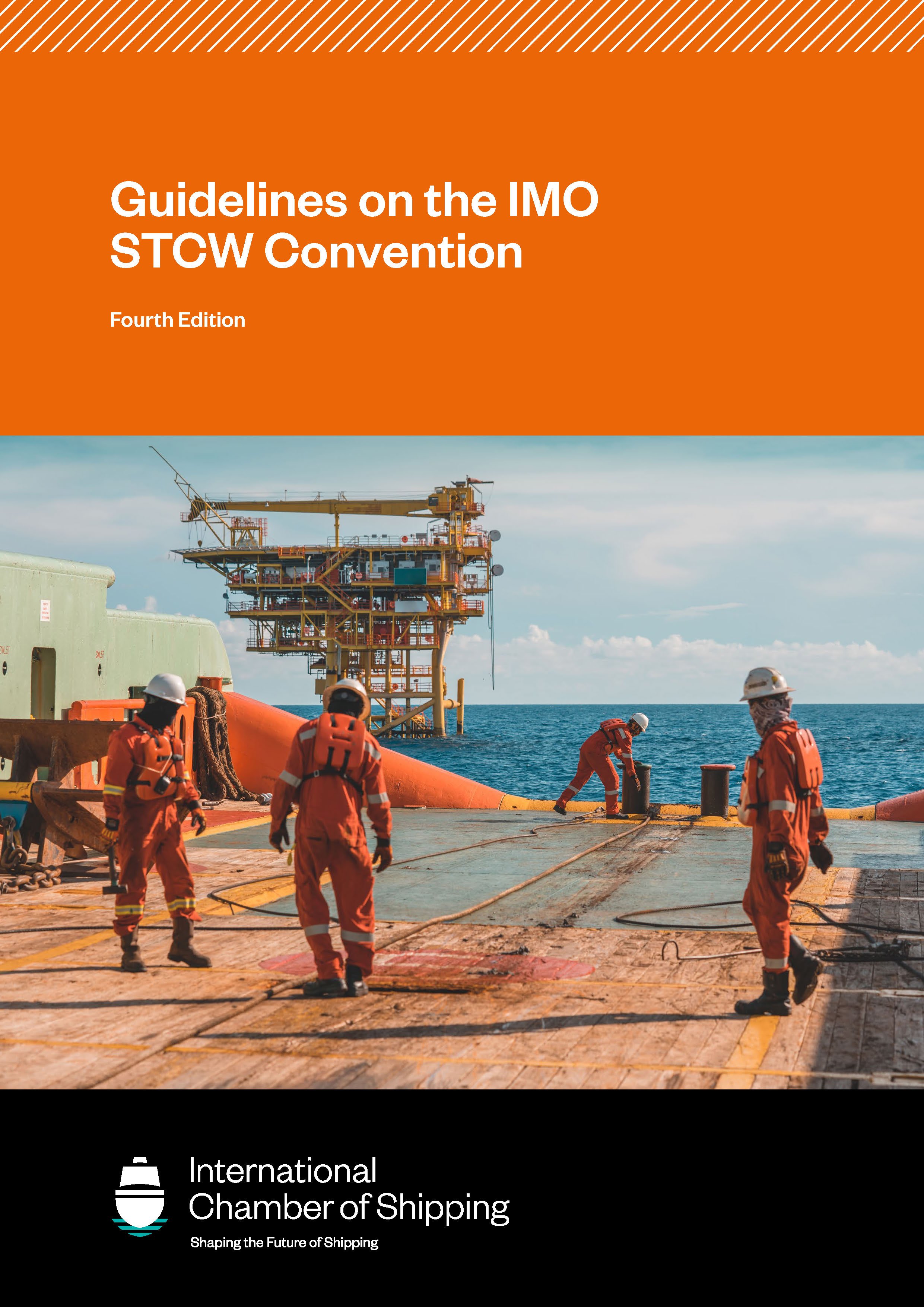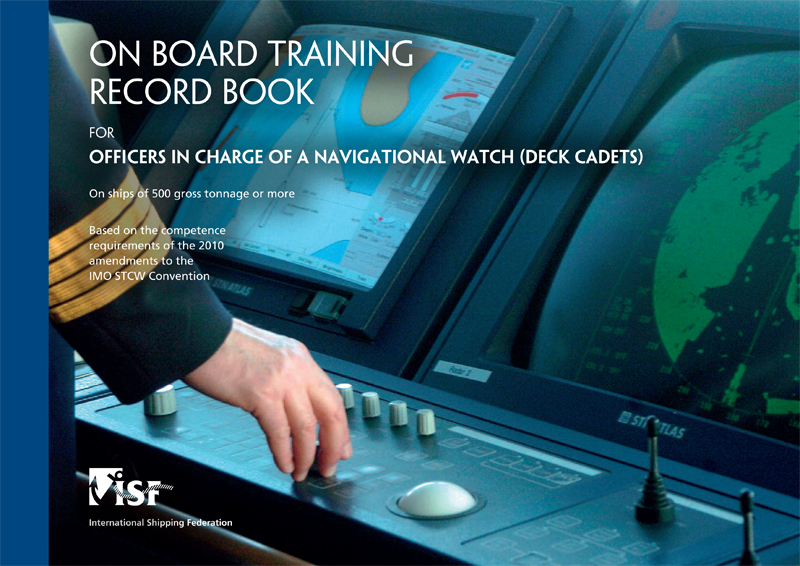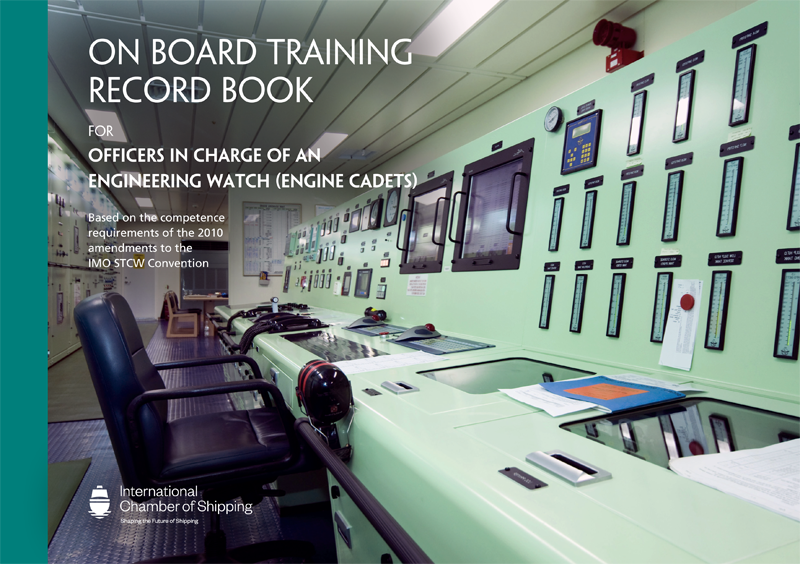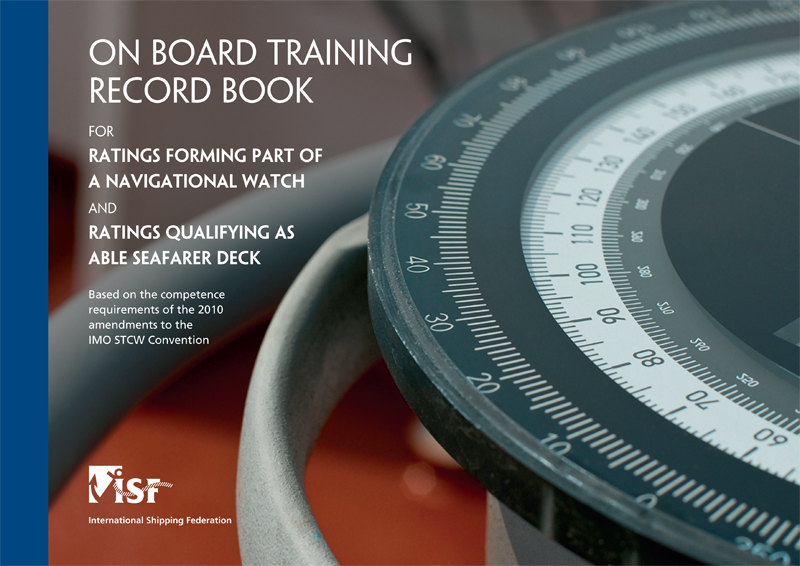In stock
Guidelines on the IMO STCW Convention
£ 135
The IMO International Convention on Standards of Training, Certification and Watchkeeping for Seafarers (STCW) regulate the training and certification of seafarers and forms the basis for standards of crew competence that are enforced worldwide. The Convention also regulates watchkeeping arrangements on board merchant ships, including watchkeepers’ minimum rest hours.
The fourth edition of Guidelines on the IMO STCW Convention sets out the obligations for shipping companies and includes guidance on how to ensure compliance on board.
New in this edition:
- Integrates new regulations that affect training, including:
- International Code of Safety for Ships using Gases or other Low-flashpoint Fuels (IGF Code).
- International Code for Ships Operating in Polar Waters (Polar Code).
- New requirements for familiarisation training for crew on Ro-Ro Passenger Ships.
- Changes to Chapter V regarding tanker training.
- Updated guidance for crews operating dynamically positioned (DP) vessels.
- Explains clearly how the STCW Convention relates to the IMO ISM Code and ILO MLC, particularly on watchkeeping.
- Includes colour coding to distinguish mandatory parts of guidance.
- Includes flowchart setting out exactly what training is needed for seafarers.
- Features a clearer layout and includes infographics and visual aids to improve reader experience.
This guide will help readers:
- Comply with regulations.
- Avoid lengthy delays at port for non-conformances.
- Know exactly what training crews need to work on board.
- Understand how the STCW works with other IMO and ILO regulations.
- Be completely up to date on the latest regulations.
The fourth edition of Guidelines on the IMO STCW Convention has been written and designed for use by crew, crewing managers, designated persons ashore (DPAs), Masters, personnel superintendents, recruiters, training superintendents, technical superintendents, and trainers and lecturers.
Additional Information
| Author | International Chamber of Shipping |
| Publisher | International Chamber of Shipping Publications |
| Edition | Fourth Edition |
| Publication month | 2023 - February |
| ISBN | 978-1-913997-33-5 |
| Shipping Weight | 1.0Kg |
Resources
Contents
Abbreviations Chapter 1: The STCW Convention – an overview 1.1 Shipping company responsibilities 1.2 Uniform standards of competence 1.3 Measures to ensure implementation by governments 1.4 Other provisions 1.5 Structure, format and contents of STCW 2010 1.5.1 Structure 1.5.2 Format 1.5.3 Contents Chapter 2: Company responsibilities 2.1 STCW 2010 and the ISM Code 2.1.1 Guidance on implementation of the IMO International Safety Management (ISM) Code relevant to STCW 2.2 Definition of ‘shipping company’ 2.3 Explicit company responsibilities 2.3.1 Appropriate certification 2.3.2 Safe crewing 2.3.3 Refresher training 2.3.4 Record keeping 2.3.5 Shipboard familiarisation 2.3.6 Crew co-ordination 2.3.7 SOLAS communication 2.4 Minimum rest periods 2.5 Additional familiarisation and basic training 2.5.1 Familiarisation in elementary safety matters 2.5.2 Basic training 2.6 Additional training and certification requirements 2.6.1 GMDSS 2.6.2 Survival craft and fast rescue boats 2.6.3 Advanced fire fighting 2.6.4 Refresher training for survival craft, fast rescue boats and advanced fire fighting 2.6.5 Medical care 2.6.6 Security training 2.6.7 Leadership and teamwork 2.7 Other requirements 2.7.1 English language 2.7.2 Knowledge of maritime law 2.7.3 Prevention of drug and alcohol abuse 2.8 Best practice for instructors’ and supervisors’ qualifications Chapter 3: The competence based approach to training 3.1 Training ‘outcomes’ 3.1.1 Seagoing service 3.1.2 Training record books 3.2 Standards of competence 3.2.1 Competences 3.2.2 Functions 3.2.3 Levels of responsibility 3.3 Specification of standards of competence 3.4 Criteria for defining competence 3.4.1 Knowledge, understanding and proficiency 3.4.2 Methods for demonstrating competence 3.4.3 Qualifications of crew conducting in-service training and assessment 3.4.4 Simulator training 3.4.5 Evaluating competence 3.5 Alternative certification 3.6 Training for specific ship types 3.6.1 Passenger ships 3.6.2 Tankers 3.6.3 Offshore supply vessels 3.6.4 Ships in polar waters 3.6.5 Ships subject to the International Code of Safety for Ships Using Gases or Other Low-flashpoint Fuels (IGF Code) Chapter 4: Implementation and enforcement 4.1 Ensuring compliance by companies 4.1.1 Penalties 4.1.2 Port State Control 4.2 Ensuring implementation by governments 4.3 The STCW ‘white list’ 4.4 Quality standards 4.5 Flag State responsibilities Chapter 5: Seafarer grades and certification introduced by the Manila amendments 5.1 Able seafarer deck 5.2 Able seafarer engine 5.3 Electro-technical officer 5.4 Electro-technical rating Appendix Recommended industry publications |
Foreword
The competence of seafarers is a critical factor in the safe and efficient operation of merchant ships and has a direct impact on the safety of life at sea and the protection of the marine environment. These ICS guidelines advise shipping companies and shipboard personnel of their fundamental obligations as required by the International Convention on Standards of Training, Certification and Watchkeeping for Seafarers (STCW). As well as providing advice on compliance, the guidelines are intended to provide background information on the philosophy underlying the ‘competence-based’ approach to training which the STCW Convention seeks to promote. The global training and competence standards were substantially overhauled by the International Maritime Organization (IMO) almost 30 years ago by the package of IMO regulations known as ‘STCW 95’ and then further revised by the 2010 ‘Manila amendments’, also known as STCW 2010. The phase-in period for the implementation of the Manila amendments came to an end in 2017 and must now be fully complied with by shipping companies and the seafarers they employ. The competence-based approach to training, where practical skills must be demonstrated (as opposed to just sitting an exam), is now universally applied. Rather than training standards being left to the satisfaction of national Administrations, the international competence tables in the STCW Code underpin maritime education around the world. Flag States are also required to take direct responsibility for the competence of the seafarers serving on their ships, which is important given that most seafarers work on ships that fly a flag that differs from their own nationality. As a result, compared to the early 1990s, employers have far greater confidence in the validity of seafarers’ certificates, regardless of their country of issue. While there is always room for further improvement, there is now a clearer sense that all seafarers working internationally are part of the same high calibre global profession, in which the paramount importance of safety of life at sea and the protection of the marine environment is universally recognised. In 2018, as part of its commitment to continuous improvement, ICS proposed that IMO should undertake a further comprehensive review of the STCW Convention and Code, similar in scale and scope to that undertaken in the 1990s. The intention is take full account of recent developments in technology, so that competence standards will remain fit for purpose in the decades ahead. It is anticipated that significant focus will given to the opportunities presented by digitalisation and the ‘fourth propulsion revolution’ in including efforts to achieve a ‘just transition’ towards a decarbonised future in which no seafarer will be left behind. The International Chamber of Shipping is leading the participation of maritime employers at IMO leading up to the next major set of changes to the STCW Convention, which are currently planned to come into effect from 2026. In the meantime, this fourth edition of the ICS guidelines for shipping companies has been updated to take account of further recent changes to the Convention after the Manila amendments. These include the amendments to the requirements for training for ships operating in polar waters, ships subject to the International Code of Safety for Ships Using Gases or Other Low-flashpoint Fuels (IGF Code) and amendments to the STCW Convention Chapter I, Table B-I/2 that came into force on 1 January 2021. The training requirements for crew members serving on ships operating in polar waters have been included under the Polar Code, which is mandatory under the International Convention for the Safety of Life at Sea (SOLAS) and the International Convention for the Prevention of Pollution from Ships (MARPOL), but there are also training implications under STCW. To ensure that all crew members are aware of the environment they are operating in, basic training is required for all deck officers operating in polar waters and advanced training given to masters and officers in charge of a navigational watch when navigating in ice conditions. STCW has also added more requirements for ships that are subject to the IGF Code, i.e. ships operating using fuels with low flashpoints. The training requirements differ, depending on whether a seafarer holds a certificate of proficiency in liquefied gas tanker operations. This fourth edition also expands on the recommendations for ships that operate dynamic positioning (DP) systems and on the training of crew on these ships. |






